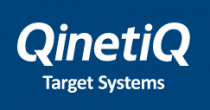Southeast Collegiate celebrates grand opening of their new state-of-the-art school facility in Winnipeg
WINNIPEG, Sept. 6, 2018 /CNW/ - The Government of Canada is working in partnership with First Nations to ensure that First Nations children and youth have the tools they need to succeed and maintain a strong connection to their culture and identity.
Today, the Honourable Jane Philpott, Minister of Indigenous Services, and Terry Duguid, Member of Parliament for Winnipeg South, joined the Southeast Resource Development Council (SERDC) to celebrate the grand opening of their expanded Southeast Collegiate campus in Winnipeg.
The expanded campus will welcome 156 students from remote First Nations communities across Manitoba to complete their high school education. The newly expanded facility includes ten classrooms, a resource room for students with special needs, a classroom for power mechanics, a gymnasium and a student residence.
Since 1996, Southeast Collegiate has offered its students academic and trade opportunities, while supporting their social and cultural needs through innovative programming in areas such as Indigenous languages, cultural programming, and land based education. The school has shown great success, with a retention rate of 97 per cent and a graduation rate of 92 per cent.
The Government of Canada provided a $10 million innovation fund contribution to support the expansion project. Indigenous Services Canada also provided $5.6 million in 2017-18 to the SERDC in support of Southeast Collegiate's instructional and accommodation costs.
Quotes
"Indigenous students thrive in environments that support academic success together with their social and cultural identity. Southeast Collegiate's fulsome approach incorporates innovative programming in areas like Indigenous languages and on-the-land training, and has produced high retention and graduation rates among First Nations students from across the province. I am delighted that this new state-of-the-art facility will allow more students to complete their high school education in this culturally appropriate, supportive atmosphere."
The Honourable Jane Philpott, M.D., P.C., M.P.
Minister of Indigenous Services
"Southeast Collegiate is unlike any other school in Canada in that it not only educates students, but also houses them on site all while nourishing the First Nations culture. There is a growing demand among First Nations youth wishing to take their learning to the next level and the new school will allow us to accommodate this need."
Sheryl McCorrister
Director/Principal, Southeast Collegiate
Quick Facts
-- Southeast Collegiate boasts a retention rate of 97 per cent and a
graduation rate of 92 per cent while also supporting the social and
cultural needs of Indigenous students moving into an urban environment.
-- Southeast College is a nationally-recognized model for First Nation
education and represents a success story of alternative educational
program delivery while retaining cultural and traditional teachings.
-- Since 1996 Southeast Collegiate has delivered innovative programming in
areas such as Indigenous languages, cultural programming, and land based
education in order to provide high school education, academic and trades
opportunities for First Nations students in Manitoba.
-- Since its first graduating class in 1996, 515 students have graduated
from Southeast Collegiate.
-- Due to growing demand, the collegiate school now accepts all Manitoba
First Nations students who live on-reserve and qualify for funding
outside their communities.
Associated Links
Southeast Collegiate celebrates construction of new state-of-the-art educational institute
Southeast Collegiate
Southeast Resource Development Council
Stay connected
Join the conversation about Indigenous peoples in Canada:
Twitter: GovCan - Indigenous
Facebook: GovCan - Indigenous Peoples
Instagram: @gcIndigenous
You can subscribe to receive our news releases and speeches via RSS feeds. For more information or to subscribe, visit www.isc.gc.ca/RSS.
SOURCE Indigenous Services Canada



